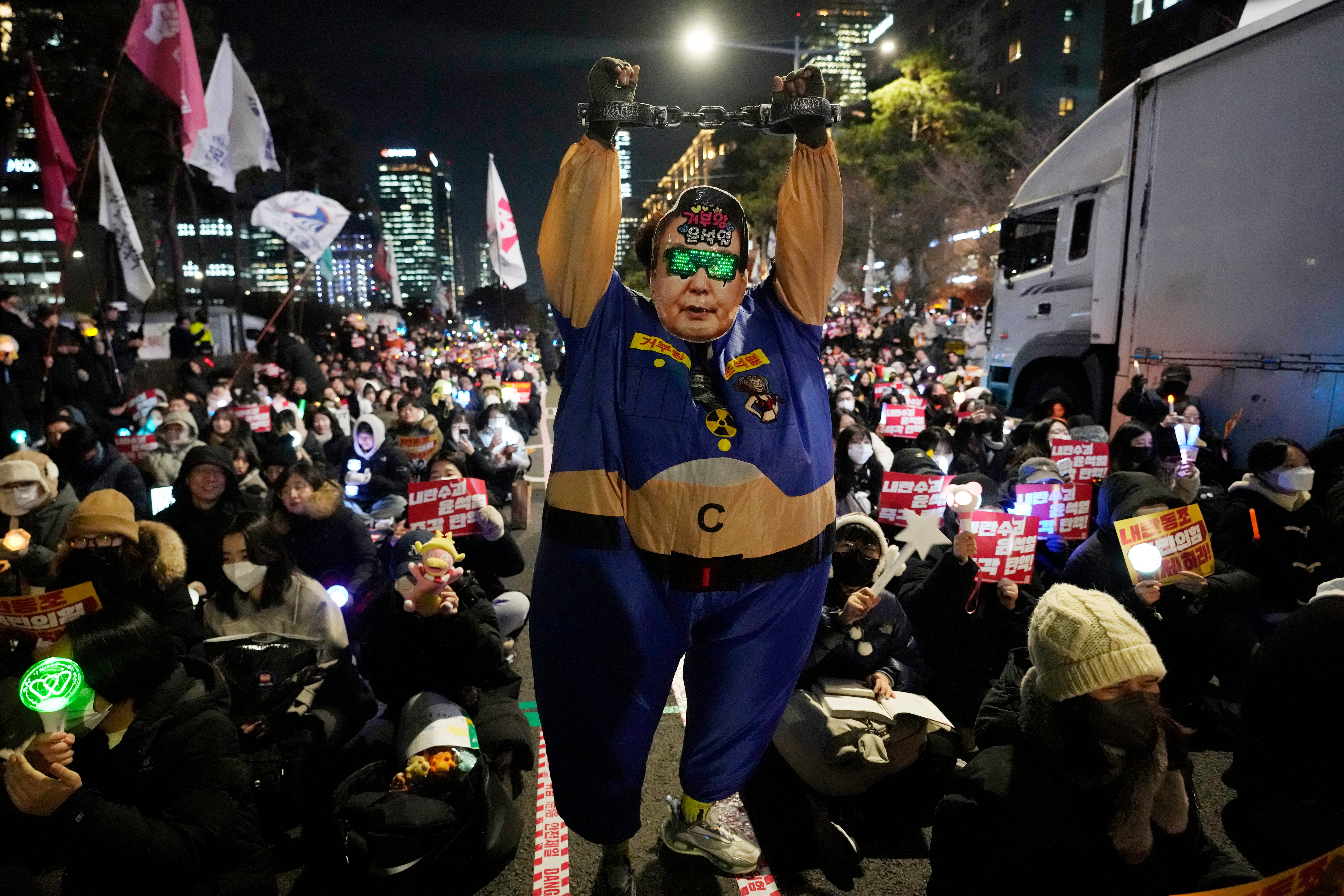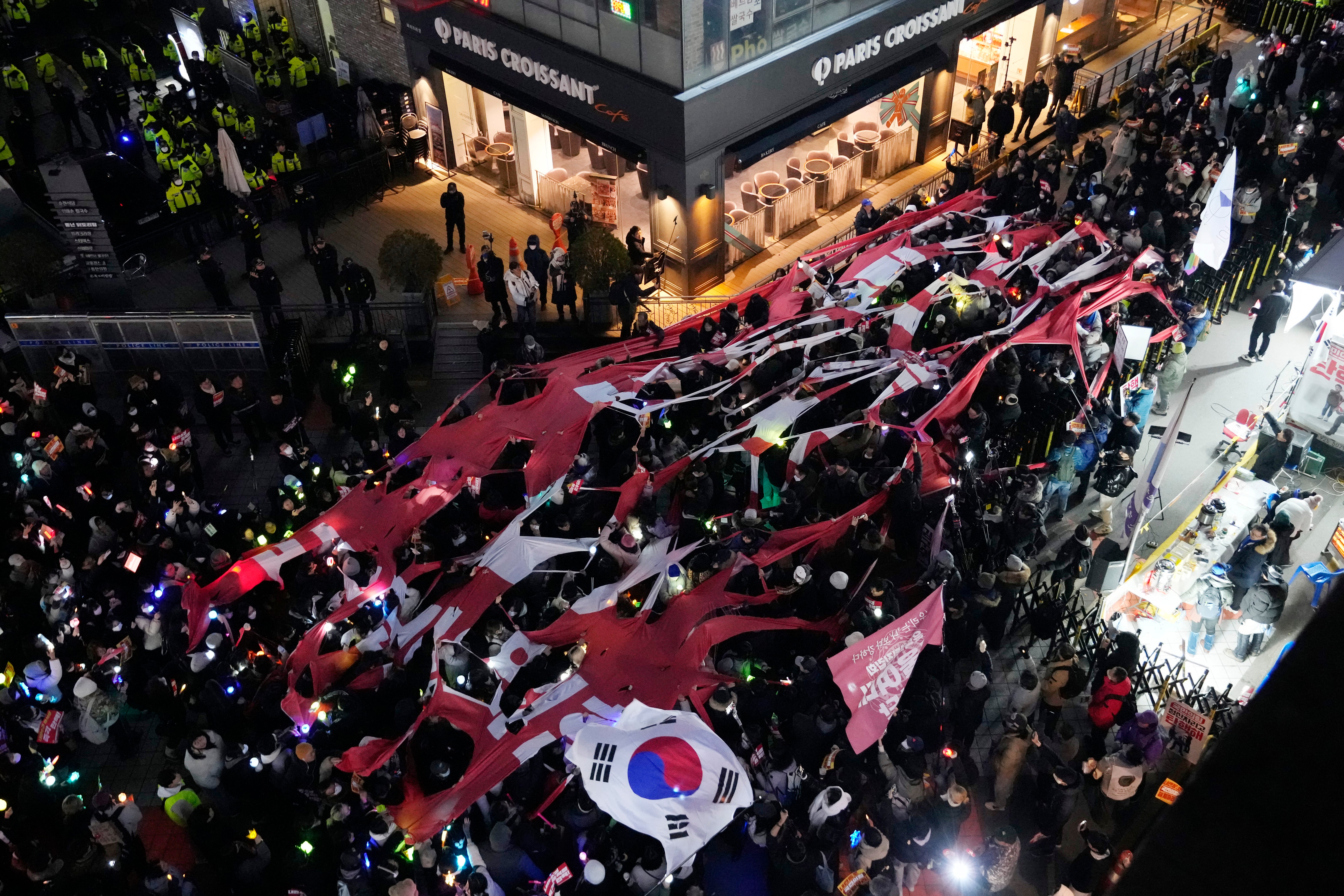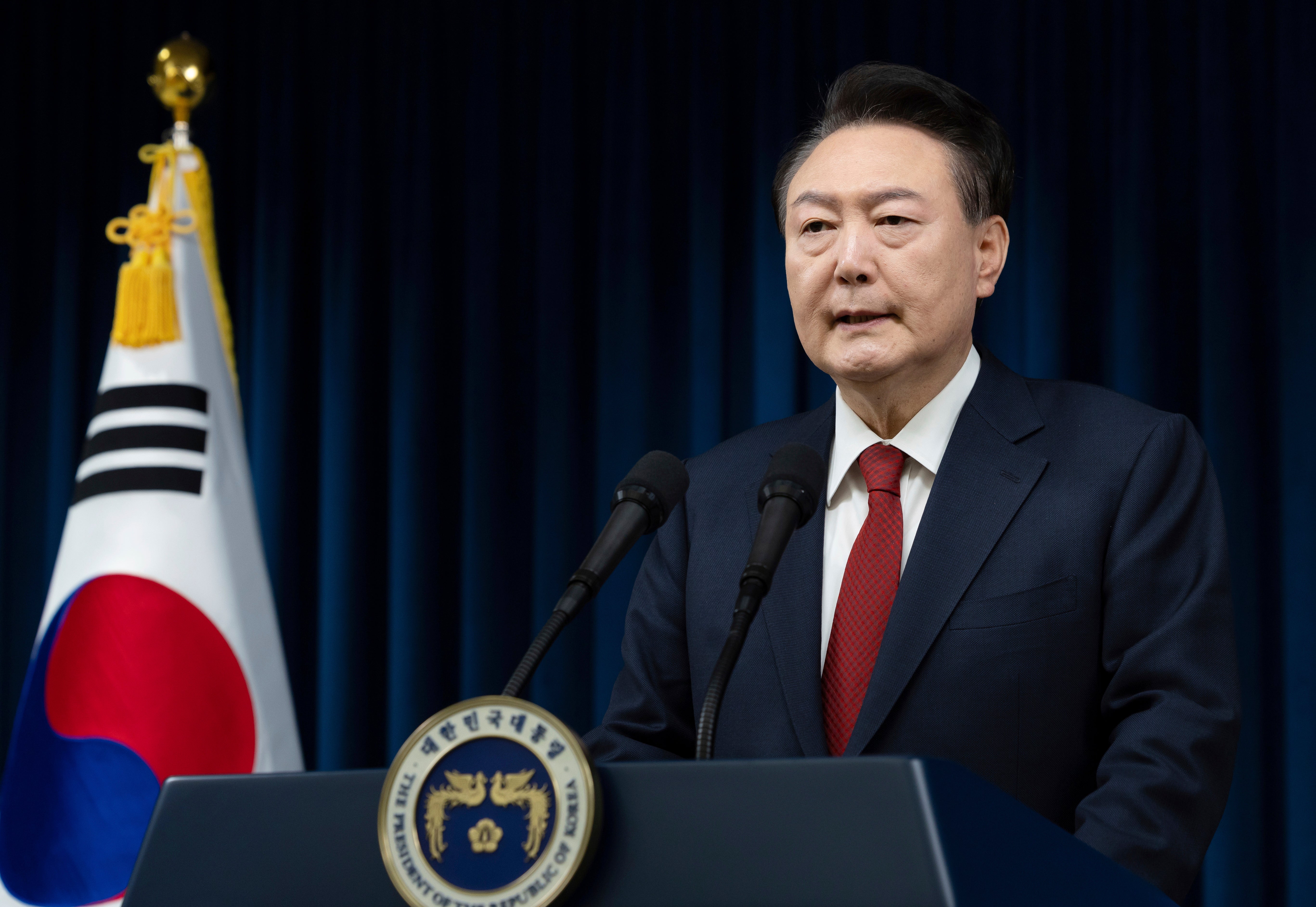South Korean lawmakers have passed a bill to appoint a permanent special counsel to investigate president Yoon Suk Yeol on charges of insurrection after his shock declaration of martial law last week pushed the country into political chaos.
Mr Yoon sent shockwaves across the world after he declared martial law, the first in more than 40 years, on 3 December which lasted for about six hours but triggered large street protests and a political drama in the country.
Mr Yoon has managed to hang on to his position despite the first impeachment attempt on Saturday which failed to materialise after most governing party lawmakers boycotted a floor vote in the National Assembly.
The National Assembly on Tuesday passed a bill with a 210-63 vote to investigate Mr Yoon, former defence minister Kim Yong Hyun, Army Chief of Staff Ge Park An Su and other top aides for their involvement in the martial law declaration.
Unlike a regular special counsel investigation, the president does not have the authority to veto a bill establishing a permanent special counsel. However, he can delay the appointment of the counsel.
On Monday night, hundreds of K-pop fans sang and waved glow sticks during protests to demand the removal of Mr Yoon from his post in rare scenes of music mixing with politics.

Crowds of people gathered outside the National Assembly and waved fluorescent green, pink and white glow lights, representing the country’s most iconic pop groups, including NCT, EXO, Seventeen, and Aespa.
Squid Game creator Hwang Dong-hyuk joined the calls by hundreds of South Korean film artists for impeachment or resignation of Mr Yoon.
“It’s unfortunate and infuriating that the whole country has to spend the end of the year with fear, anxiety, and depression because of this ridiculous situation,” Hwang told reporters at a news conference in Seoul on Monday ahead of the second season’s launch of the popular show, reported the South China Morning Post.
“I hope that the person who is responsible for this situation takes responsibility as soon as possible, whether it is through impeachment or voluntary resignation, so that we can have a blessed year-end,” the 52-year-old said.
The anger has continued to mount against Mr Yoon as opposition parties and observers say the martial law decree was unconstitutional as the president is only allowed to invoke it during "wartime, war-like situations or other comparable national emergency states". This was not the situation in South Korea.
South Korean prosecutors on Tuesday sought the arrest of a former defence minister for allegedly colluding with Mr Yoon in imposing martial law last week.
He is believed to be the key mastermind of the unprecedented move of sending troops to the National Assembly to block lawmakers from voting on martial law.
Mr Kim said in a statement he "deeply apologizes for causing significant anxiety and inconvenience."
He said all responsibility for the imposition of martial law rests solely with him and pleaded for leniency for soldiers deployed to enforce it, saying they were only following his order.

He was detained on Sunday and if an arrest warrant is issued, he would be the first person to be arrested in the case.
Prosecutors would have up to 20 days to investigate Mr Kim and determine whether to indict him. A conviction on the charge of rebellion would carry up to the death penalty.
During a parliamentary hearing Tuesday, Kwak Jong-keun, commander of the Army Special Warfare Command whose troops were sent to parliament, testified that he received direct instructions from Kim Yong Hyun to obstruct lawmakers from entering the National Assembly’s main chamber.
Mr Kwak said the purpose of Mr Kim’s instructions was to prevent the 300-member parliament from gathering the 150 votes necessary to overturn the president’s martial law order.

Mr Yoon became the first sitting president on Monday to receive a travel ban to block him from leaving the country as multiple agencies expand their investigations into the circumstances surrounding Mr Yoon’s power grab.
Mr Yoon will likely face a second impeachment vote which is planned for Saturday after members from the ruling PPP agreed to join the vote.
His ruling party also said that it was discussing Mr Yoon’s potential resignation as early as February and holding a snap election in April or May.







